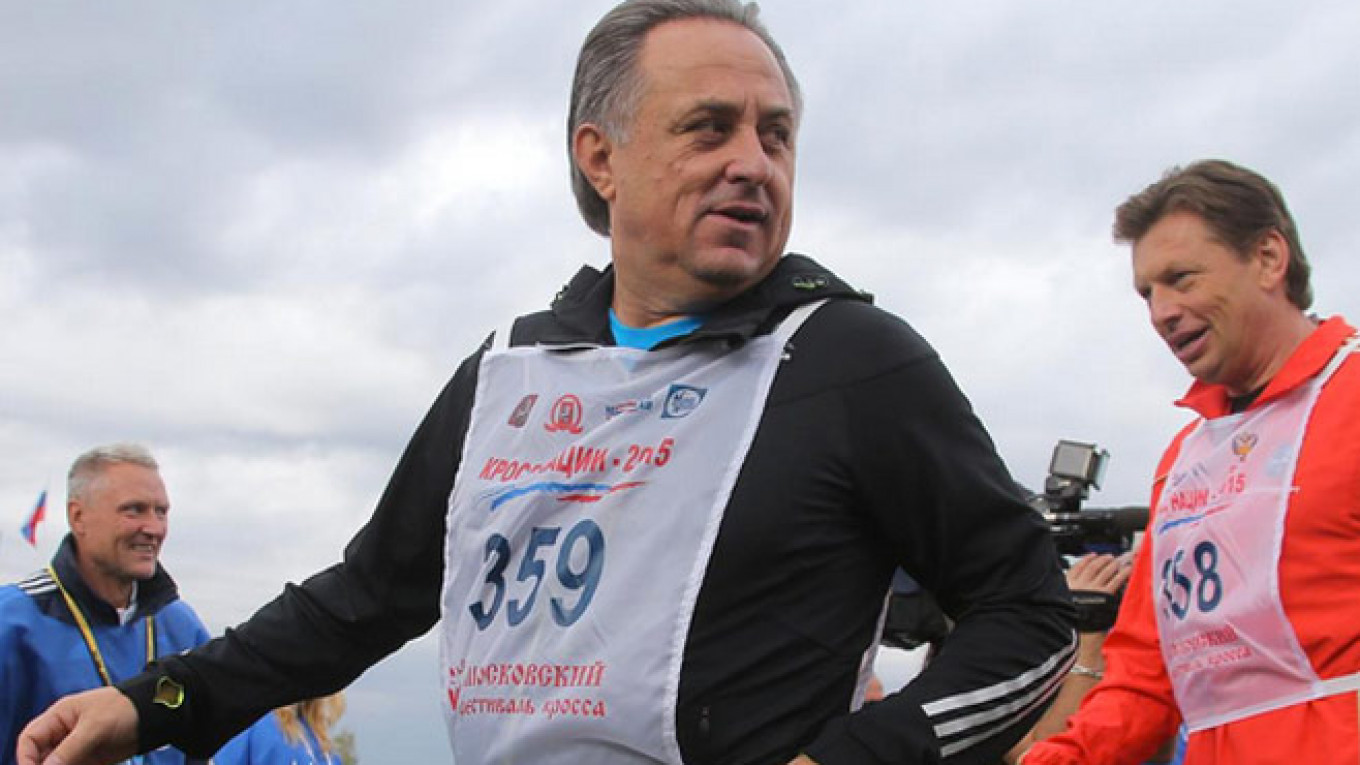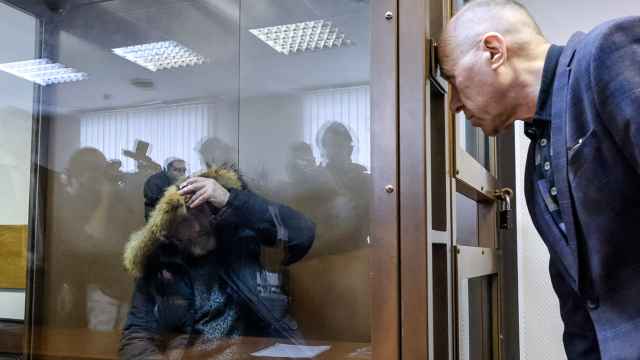Russia's sports minister — whose attempts to speak English at international gatherings have produced such gems as "Let's me speak from my heart" — received an English coursebook as a birthday gift from President Vladimir Putin, according to media reports on Tuesday.
Sports Minister Vitaly Mutko, who turned 57, was presented with the coursebook, along with presidential wishes of "Good luck studying English," at a recent meeting in the Kremlin on developing sports in the country, the Interfax news agency reported.
"Vitaly Leontyevich Mutko is celebrating his birthday today, and I want to wish him a happy birthday," Putin was quoted as saying at the start of the meeting.
"Since [Mutko] is not only involved in our projects, does not only head our football, but is also actively working at an international level, I would like to present him with an English-language self-study coursebook," Putin said, Interfax reported.
The sports minister, who is also a FIFA executive committee member and head of the committee organizing the 2018 FIFA World Cup in Russia, has gained renown by speaking a version of English that sounds like he learned the language from stereotypical Russian characters in Hollywood movies.
Some of his best-known quotes include an assertion that construction of a new stadium in Russia involved "No problem, no criminality," and an announcement at the start of his speech at a FIFA gathering: "Let's me speak from my heart, in English."
If Mutko's prepared speeches may be somewhat lacking in the departments of grammar or accuracy, his ad-lib remarks can be positively smashing.
Speaking to reporters in Switzerland earlier this year, Mutko mixed up English and Russian words to produce the following forecast: "Tomorrow? Nu … tomorrow meeting budet yevro association. Mozhet budet recommendation, nationalization the yevro."
In case you needed help deciphering some of the words, "nu" is a Russian interjection — similar to a hesitant "well" — "budet" means "will be," "yevro" is the Russian word for the euro, and "mozhet" means "maybe."
As for Russia's president, Putin speaks fluent German, having spent a stint in East Germany with the KGB. After becoming president, he reportedly started taking English lessons, and spoke the language in public and during informal conversation with Western officials on several occasions.
Russia's Prime Minister Dmitry Medvedev also took the chance to compliment Mutko on his linguistic prowess. Commenting on a birthday post published on the government's official Instagram account, he quoted one of the sports chief's most memorable lines:
"Happy birthday, Vitaly Leontyevich! E new era for ze world began!"
Contact the author at [email protected]
A Message from The Moscow Times:
Dear readers,
We are facing unprecedented challenges. Russia's Prosecutor General's Office has designated The Moscow Times as an "undesirable" organization, criminalizing our work and putting our staff at risk of prosecution. This follows our earlier unjust labeling as a "foreign agent."
These actions are direct attempts to silence independent journalism in Russia. The authorities claim our work "discredits the decisions of the Russian leadership." We see things differently: we strive to provide accurate, unbiased reporting on Russia.
We, the journalists of The Moscow Times, refuse to be silenced. But to continue our work, we need your help.
Your support, no matter how small, makes a world of difference. If you can, please support us monthly starting from just $2. It's quick to set up, and every contribution makes a significant impact.
By supporting The Moscow Times, you're defending open, independent journalism in the face of repression. Thank you for standing with us.
Remind me later.






